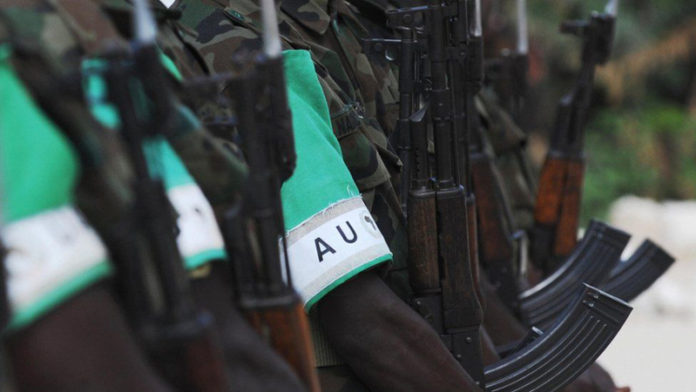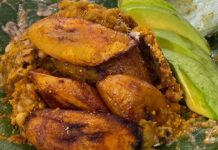ACCRA — On March 3’rd 2016, Russian Foreign Minister Sergei Lavrov published an article on Russia’s Foreign Policy – Historical Background in the influential Russian and International Relations Journal, Russia in Global Affairs. We offer a commentary on this article and relate its normative structure to Africa’s emerging role in global affairs in the context of the unstoppable historical processes occurring in global geopolitics today.
Foreign Minister Lavrov starts by noting that international relations have entered a difficult period with Russia again finding itself at the crossroads of key trends that will determine the vector of future global development. He turns to key events in Russian history to back his claim of Russia’s special role in European and global history. He mentions the celebration in 2015 of the 70th anniversary of the Soviet victory in World War 2, the 2014 observation of the 100 years since World War 1 both critical events in world history that involved Russia as a key arbiter of global historical processes. He then notes specific national events like the 200 years since the battle of Borodino where Napoleon’s Grande Armee was defeated and the 400 years since Moscow was liberated from Polish invaders.
In fact, Russia’s mobilization for war in 1914 in defense of Serbia under threat from the Austro-Hungarian Empire set in motion the catastrophic chain of events that sparked what is known as the Great War or the Word War 1. Russia in the incarnation of the Soviet Union played the key role in defeating Nazi Germany and setting the stage for the global confrontation between its Soviet incarnation and the West in the second half of the 20th century. This singular period acted as the historical incubator from which many African countries obtained independence from western colonial powers. The existence of a Soviet pole of global power committed to ending colonialism was the single most important factor in the decolonization process. Many national liberation movements in the western colonies were funded, and supported by the Soviets to achieve national political independence and socio-historical emancipation.
Lavrov then goes on to tackle the eternal question of Russia’s “Europeaness “. He recognizes the important European aspect of Russia but acknowledges that, “Russian people possessed a cultural matrix of their own and an original type of spirituality and never merged with the West”. He mentions the view by the prominent Russian historian and Ethnologist Lev Gumilyov who believed that the Mongol invasion of Russia had prompted the emergence of a new Russian ethnos and that the Great Steppe had given Russia a new impetus for development.
What is of interest to us in Africa is the vital idea that Russian people possessed a cultural matrix of their own and an original type of spirituality and never merged with the West. The consciousness of this idea in the remerging historical African mind; that we African people possess a unique cultural matrix and a primeval original spirituality conceptualized as the operative principle of Maat, and which transcends the theological palpitations of Christianity or Islam is a fundamental axiom to imbibe into the minds of the mass of our people if we are to recover our proper historical role as a Great Power in the concert of civilizations.
He continues his excursion in history by remarking that by the 15th century, Russia had emerged as a single state free from the Mongol Yoke, and seen as the historical successor to the Byzantine Empire which was the Eastern Roman Empire based in its capital city of Byzantium on the Bosporus as opposed to the Western Roman Empire with its capital in Rome. Russia by this time was a Eurasian Power in its cultural manifestation and then later on in its spatial manifestation with the conquest of Siberia and reaching the borders of the Chinese Empire in the Amur region.
Foreign Minister Lavrov goes on to note that, European states had apprehensions about the Russian giant in the East and tried to isolate it whenever possible and prevent it from taking part in Europe’s most important affairs.
We note that European apprehensions of a powerful Russian state in the East and repeated attempts to corral and quarantine it has a strong historical strain in western geopolitical thought. We can contextualize this with western attempts to prevent the emergence of a powerful united African superstate as imagined by Kwame Nkrumah. The historical west had slept through the emergence of a powerful unified Russian state in the East occupying one sixth of the earth’s land mass. They were not going to sleep through the emergence of a powerful unified African state in the South occupying one fifth of the earth’s landmass. Therefore, there have been and continuing attempts to prevent such a natural state of being with the overthrow of Kwame Nkrumah the prime mover behind this idea, the primitive murder of Patrice Lumumba and countless others committed to the idea of this African Super state.
One poignant example of such a western policy can be seen in the words of Austrian chancellor Metternich who in the 1800s wrote “In this way one would see the realization of what has so often been announced as the most redoubtable danger to Europe- a new African power…“ This was in reference to the threat that an Arabized Egypt under Egyptian Pasha Mohamed Ali posed to Europe in the 1820s in the context of a weakening Ottoman Empire. However, the implications are clear; a new African power is a danger to Europe and the western world. Metternich is a highly regarded thinker to western geopolitical strategists like former US Secretary of State Henry Kissinger, who have defined the parameters and strategic goals of western geopolitics.
Lavrov then in the concluding pages of his article synthesizes Russian history and its effect on the country’s geopolitical trajectory in the following words:
It is important for us to understand the continuity of Russian history, which should include all of its periods without exception, and the importance of the synthesis of all the positive traditions and historical experience as the basis for making dynamic advances and upholding the rightful role of our country as a leading center of the modern world, and a provider of the values of sustainable development, security and stability.
The takeaway from this synthesis of Russian history, for an emerging African Union in the infant stages of Great Power evolution is the importance of placing the African Union in its proper historical context. The African Union needs to begin to see itself as the historical successor of the powerful ancient Egyptian state, which in its day was for historically long periods the undisputed Super Power of Africa and the Eurasian Landmass. The historical experience of Kemet (Ancient Egypt) will serve as the basis for the African Union to make dynamic advances and uphold it as a leading center of the modern world. Such a mental framework pregnant with historical consciousness and embedded in the thinking of our African peoples needs to be developed.
The African Union needs to begin thinking in that direction and seeing Africa’s geopolitical history as a continuum starting in pharaonic Egypt and crystallizing itself in the form of the African Union in the present. The future vector of African geopolitical and economic power is destined to be pointing in that direction.











It is far better to borrow experience than to buy it. Russia’s experience with the West is there for any sensible policy-maker in Africa to see. Our tribulation with the West, mimicking Russia’s tribulation also, has worked some kind of patience in Africa. But, this patience together with what we can borrow in experience should delineate the African Union’s astute experience in foreign affairs. This is the only way to breed hope on this continent. Fantastic piece by Jehuti Nefekare.
Are we capable???
I would hope so Sista Grace! But, more backward tribes than us in Europe have risen up from their ashes and today, kind of rule the world. If they can do it, then no matter the ashes of our squalor today, we can also rise up and conquer. For after all, we’ve done it before, several times, actually.
“The African Union needs to begin thinking in that direction and seeing Africa’s geopolitical history as a continuum starting in pharaonic Egypt and crystallizing itself in the form of the African Union in the present. The future vector of African geopolitical and economic power is destined to be pointing in that direction.”
For this reason alone, the basis of the African Union must change. The African Union must begin to incorporate Traditional Leaders, Chiefs, Kings and so forth and so on. This useful step will grant the Union the traditional legitimacy it needs from the grassroots upwards. There’s absolutely no reason why our chiefs cannot meet at the African Union. If they are still wreaking havoc on their people then they need to be educated and exposed to the geopolitical nuances of today’s world instead of leaving them to wallow in their parochial renditions of a village life that never works.
Maybe one way to incorporate the traditional rulers is by instituting The High Traditional Council of the AU?
That would be awesome Jonathan Nukpezah. I feel that this is perhaps the way to begin to restore legitimacy to the concept that the AU is a re-emergence of Kemet or Nubia.